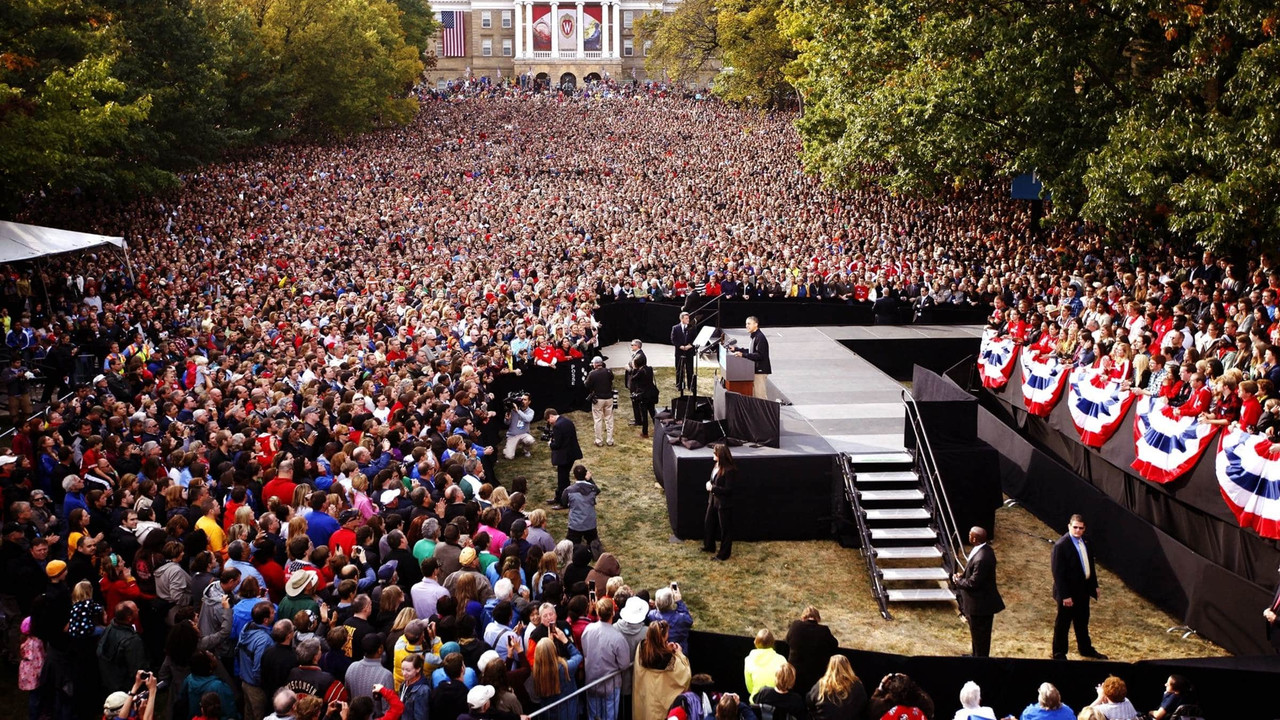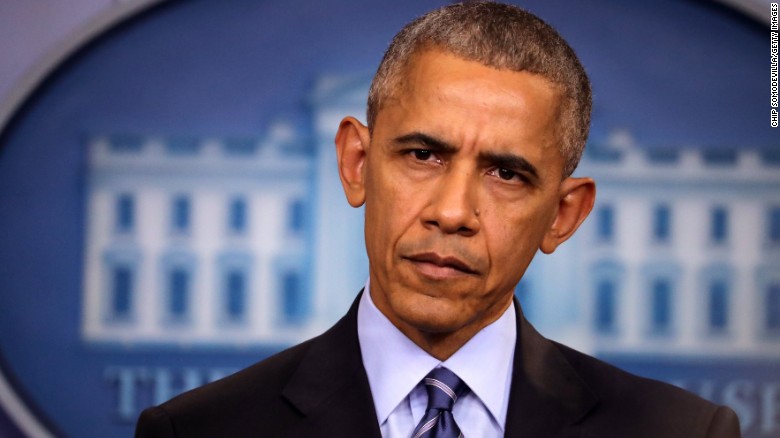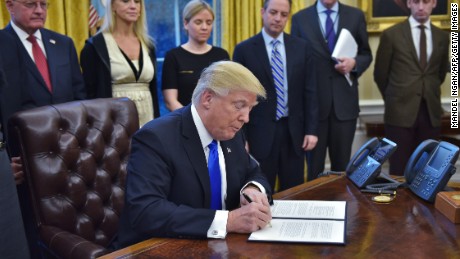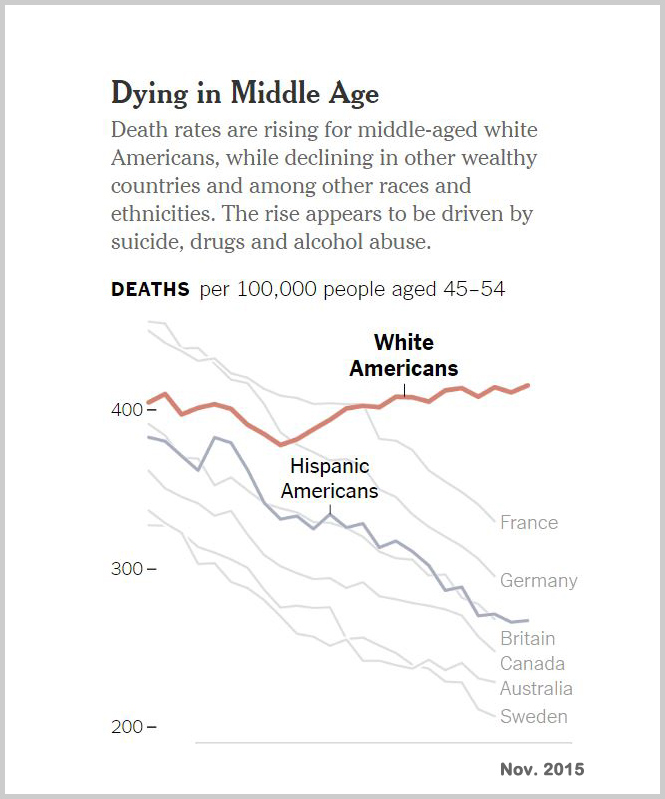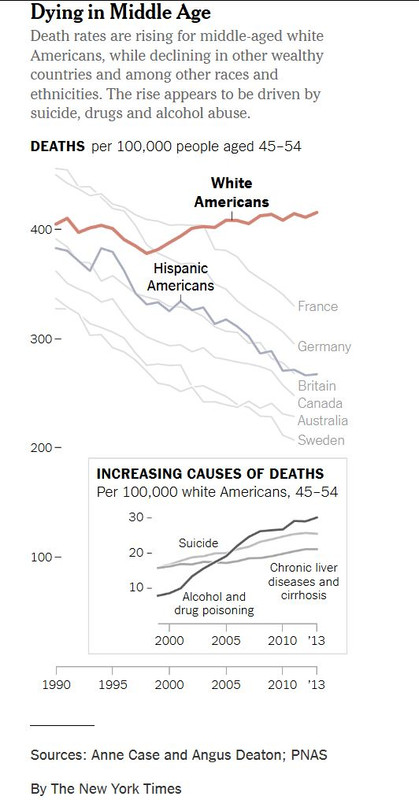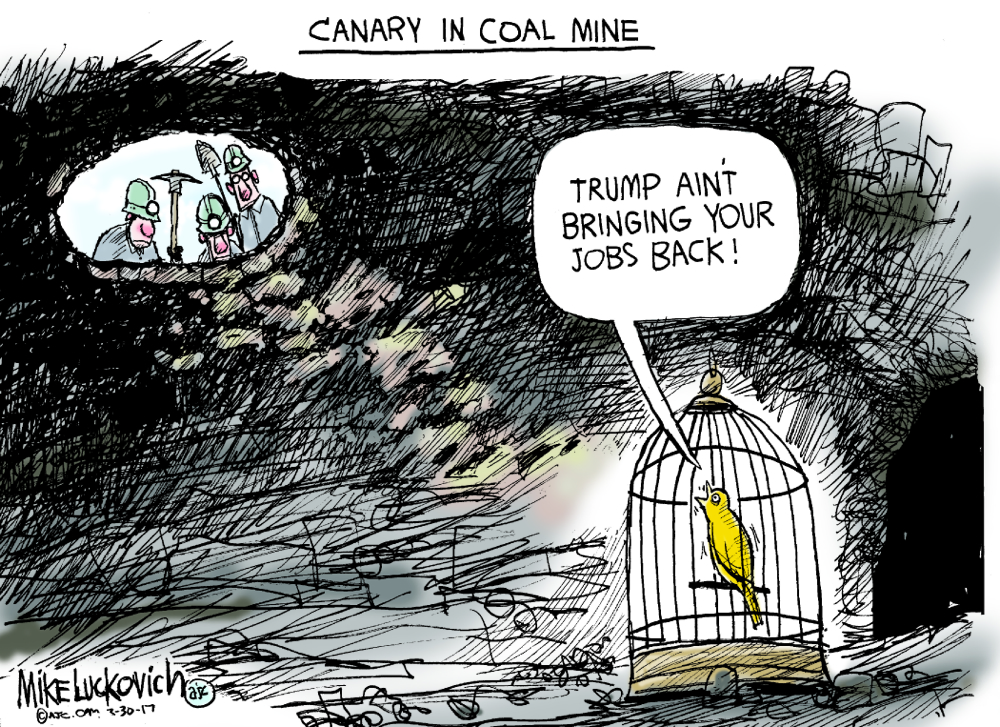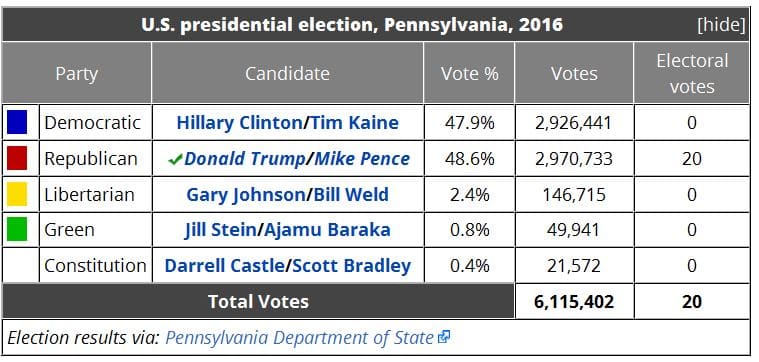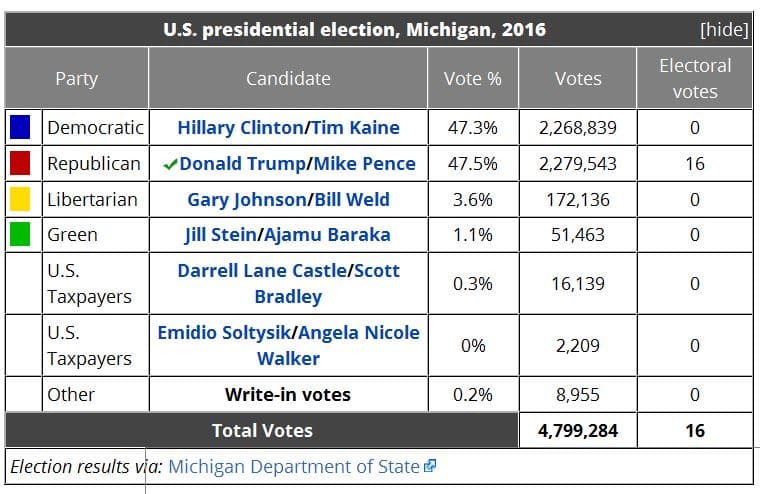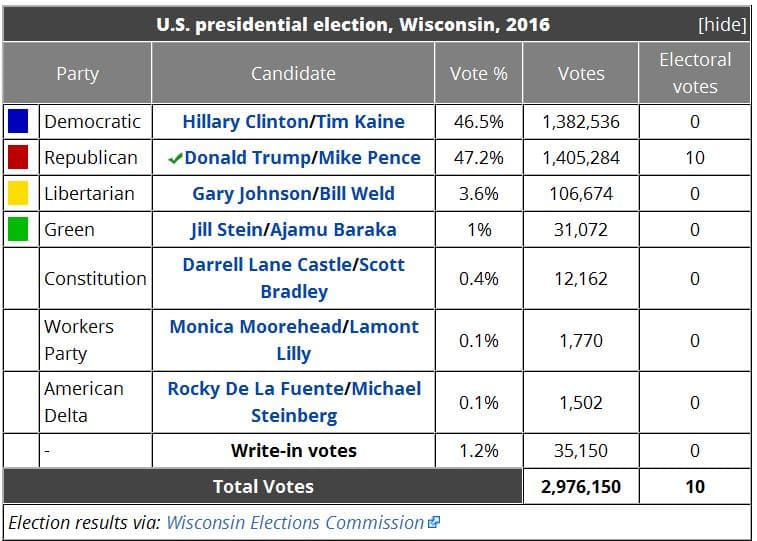2016 Election - Autopsy of the Democratic Corpse
Dems grapple with lessons from Clinton disaster
By Niall Stanage - 12/12/16 06:00 AM EST

Democrats are grappling with how to draw the right lessons — and avoid the wrong ones — after an
extraordinary presidential election.
Hillary Rodham Clinton's loss to Donald Trump is an unmitigated disaster for Democrats, who want to ensure nothing like it happens again. But Clinton’s popular-vote lead over Trump is so large that it complicates the question of how to recalibrate for future elections.
Clinton led Trump by almost 3 million votes as of Sunday, according to a Cook Political Report tracker, with some final results still to be tabulated. More than 128 million votes were cast for the two main candidates nationwide, and Trump emerged as the victor by winning three Rust Belt states by margins of roughly 11,000 (Michigan), 23,000 (Wisconsin) and 44,000 (Pennsylvania).
Joe Trippi, a Democratic strategist who managed former Vermont Gov. Howard Dean’s 2004 presidential bid, pointed out that, amid all the Democratic remorse and recrimination following the election, very small differences in those three states would have led to Republicans questioning their future, not Democrats.
Trippi also saw a danger for the party, in that virtually any explanation for why Clinton lost is plausible, given the narrowness of the margin.
“Everybody can point to something that went wrong — and they’re right,” he said. “It makes it impossible to know what the party really needs to do.
“The [Bernie] Sanders people believe, if only we had been more populist we’d have won, and they’re right. The Hillary people believe, if only Bernie hadn’t attacked her so hard in the primary we’d have won, and they’re right. Everybody’s right.”
The Russians Did It. Adding another explosive ingredient to the mix, the Washington Post reported Friday that the CIA now believes Russia intervened in the election to help Trump win. The story clearly has some distance left to run.
Meanwhile, the immediate direction of the Democratic Party is further complicated because it has no obvious leader with the exception of President Obama, who will leave office in less than six weeks. At the Democratic National Committee — an organization already tainted by emails suggesting its staff helped Clinton over Sanders during the primary — interim chairwoman Donna Brazile will soon leave office, with at least three candidates seeking to replace her. The Clinton political machine, a major force in the party since President’s rise in the early 90s, is fading into obsolescence in the wake of the shock election result.
Rebuilding the DNC
Even the competition to replace Brazile at the DNC shows the different directions in which the party could shift.
- The early front-runner, Rep. Keith Ellison (Minn.), supported Sanders during the primary and has made clear that he thinks a shift to the left is in order — in part to offer the clearest possible contrast to the GOP.
“Democrats win when we harness the power of everyday people and fight for the issues they care about,” Ellison said in a statement announcing his candidacy. “It is not enough for Democrats to ask for voters' support every two years. We must be with them through every lost paycheck, every tuition hike, and every time they are the victim of a hate crime. When voters know what Democrats stand for, we can improve the lives of all Americans.”
- Former Vermont Gov. Howard Dean, who had previously served as DNC chairman, entered this year’s race and then dropped out. But the former doctor’s diagnosis, delivered via Twitter as he announced his candidacy, was that the party needed “organization and [a] focus on the young” as well as “a fifty-State strategy and tech rehab.”
- The other two candidates who remain in the race, South Carolina party chairman Jaime Harrison and New Hampshire chairman Ray Buckley have their own ideas. Harrison told the Charleston Post & Courier, “We need to go back to where the party used to be, which is not a political organization but a community organization” that would “talk about bread and butter issues.”
- Meanwhile, speculation continues to build that Labor Secretary Tom Perez could join the DNC race, perhaps functioning as a bridge between the more establishment-minded thinkers around the Obama and Clinton camps, and the progressives who look to Sanders and Sen. Elizabeth Warren (D-Mass.) as their standard-bearers.
The dividing lines between some of these positions can be the source of friction, even when they are expressed in respectful terms.
When Sanders argued in a Medium post soon after the election that diversity was important but “to think of diversity purely in racial and gender terms is not sufficient,” he faced immediate blowback on social media, especially from non-white progressives.
There are worries in some quarters that the party will try to re-fight this election when the next one rolls around, a strategy that would presumably involve emphasizing an appeal to white, Rust Belt voters. Skeptics worry that such an effort, especially if couched in culturally conservative terms, could erode the party’s support with black and Hispanic voters as well as liberal young people.
At the same time, almost everyone agrees that something needs to change.
“You can’t look at the next occupant of the White House and say, ‘Let’s just do everything again the way it was done,’” said Democratic pollster Mark Mellman, who is also a columnist for The Hill. “There aren’t many people making that argument.”
Mellman argued that the party needed to have a more coherent and relevant economic message, while also finding a way to respond to the cultural anxieties of Rust Belt voters “without in any shape or form compromising on our principles.”
Trippi, meanwhile, worried that Democrats could move too sharply in almost any direction.
“I don’t have a specific fear but I do think it’s possible that the party overcorrects,” he said, “Parties tend to overcorrect or go further over the edge, and I think that both those things are possible.”
SOURCE: http://www.thehill.com/homenews/campaign/309483-dems-grapple-with-lessons-from-clinton-disaster
.




